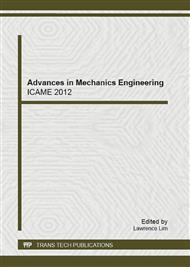p.2074
p.2078
p.2083
p.2088
p.2093
p.2097
p.2101
p.2105
p.2108
Attitude Change on the along Track Interference Baseline and Moving Target Velocimetry in the Distributed Satellite SAR System
Abstract:
In the distributed satellite SAR system, satellite attitude change bring on baseline error between physical baseline and effective baseline and echo phase error. If the errors aren’t corrected, it may induce velocity-measure error. In this paper, we first respectively analyze the Influence of the satellite attitude to effective baseline and velocity-measure precision, and build the corrected model of baseline. Then we also analyze the synthetical Influence of that. The simulation results show that the validity and the necessary of the corrected model of baseline, and it is presented that the correctional curves of the baseline error and the velocity-measure error.
Info:
Periodical:
Pages:
2093-2096
Citation:
Online since:
November 2012
Authors:
Price:
Сopyright:
© 2012 Trans Tech Publications Ltd. All Rights Reserved
Share:
Citation:


